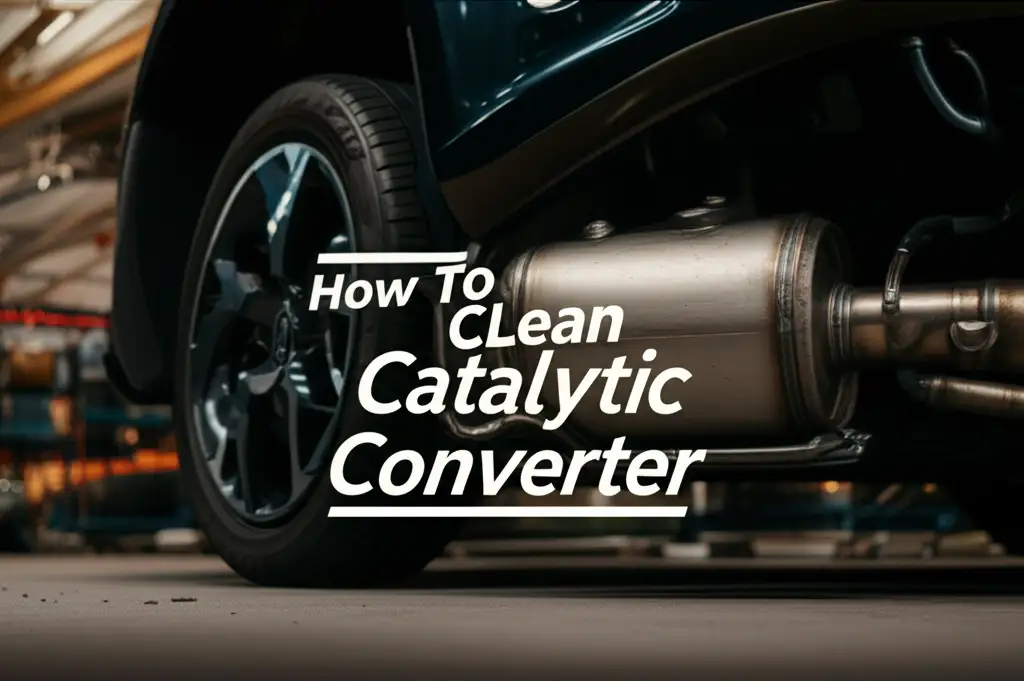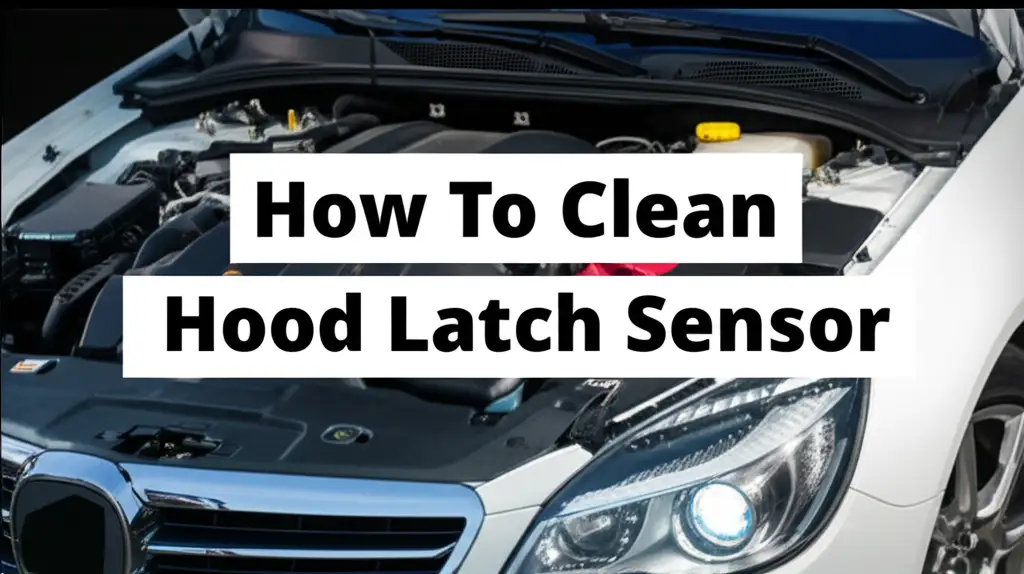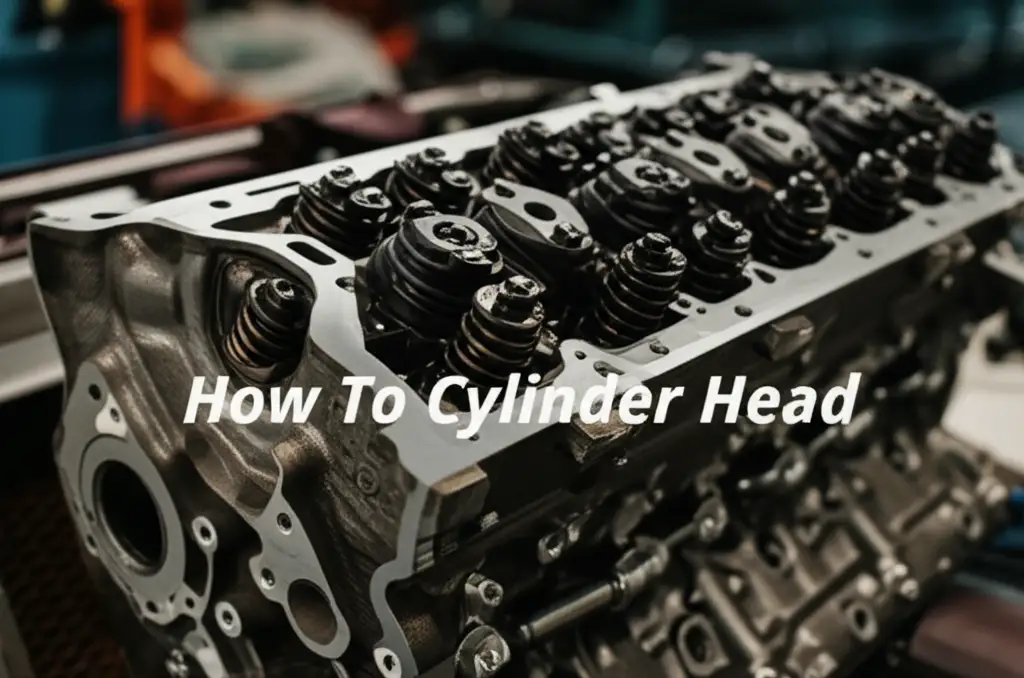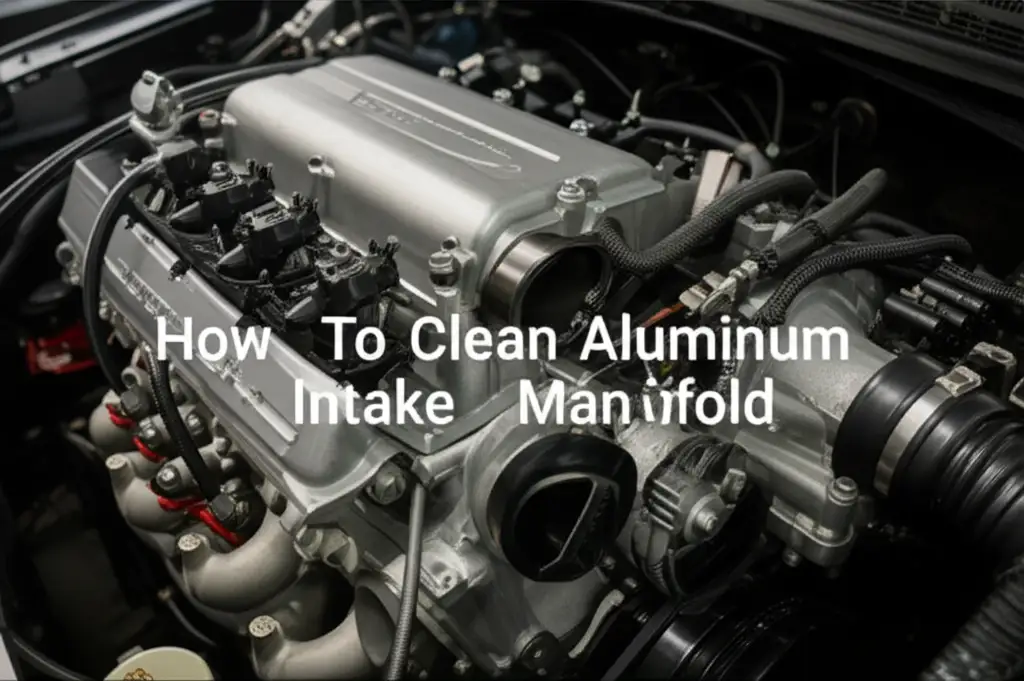· Automotive Maintenance · 20 min read
How To Clean Fuel Filter Without Removing It
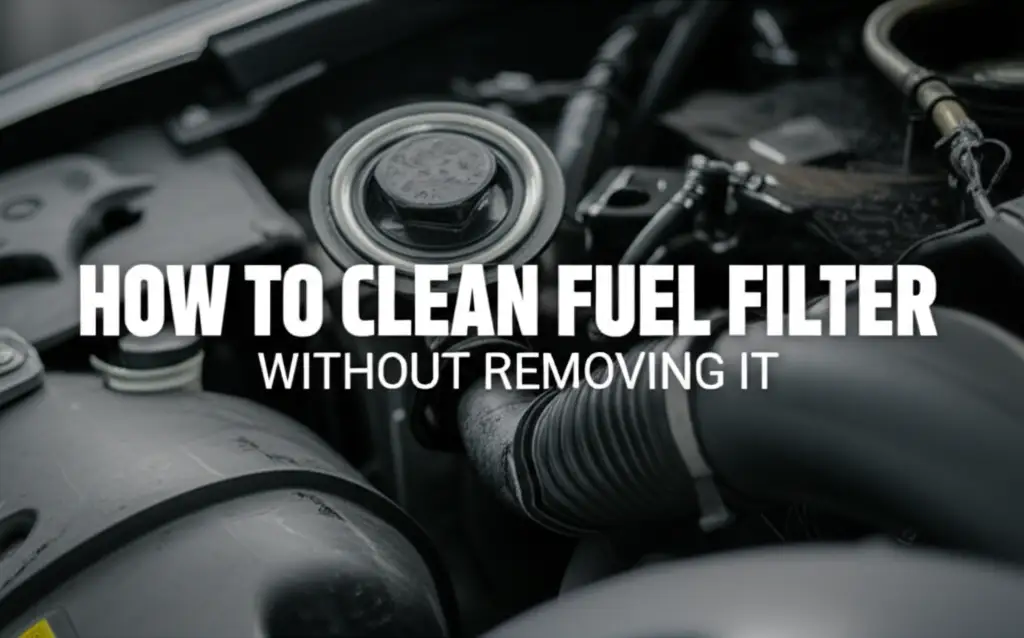
Restore Your Engine: How to Clean a Fuel Filter Without Removal
Your car’s fuel filter is a small but mighty component. It acts like your engine’s kidney, stopping dirt and debris from reaching critical parts. Over time, this filter can become clogged. This affects your vehicle’s performance. Many people think you must remove the filter to clean it. However, I am here to tell you that you can learn how to clean a fuel filter without removing it. This method involves using special additives. It is a simpler approach for many car owners. This article guides you through the process. We will cover why it matters, safety steps, and how to do it right. We will also discuss signs of a clean filter and ongoing maintenance. Get ready to give your engine a new lease on life.
Takeaway:
- Use high-quality fuel system cleaners (additives) to clean your fuel filter without removing it.
- Always prioritize safety: work in a well-ventilated area and avoid open flames.
- Add the cleaner to a nearly empty fuel tank, then fill it up.
- Drive your vehicle normally after adding the cleaner to circulate it through the system.
- Look for improved engine performance and fuel efficiency as signs of a successful cleaning.
Concise Answer:
You can clean a fuel filter without removing it by adding a high-quality fuel system cleaner directly to your vehicle’s fuel tank. These cleaners use specialized detergents to dissolve and break down deposits, allowing the contaminants to pass harmlessly through the system or burn off.
Understanding Your Fuel Filter: Why It Matters for Engine Health
Your car’s engine needs clean fuel to run well. The fuel filter plays a crucial role in this process. It sits in your vehicle’s fuel line. Its job is to block dirt, rust, and other debris from reaching the engine. Think of it as a gatekeeper for your fuel system. When you fill up your tank, tiny particles can enter the fuel. These particles come from the fuel station tanks or from rust in your own tank. Without a filter, these impurities would travel straight to your fuel injectors and engine.
A clean fuel filter ensures a steady flow of clean fuel. This helps your engine run efficiently. When the filter gets dirty, it restricts fuel flow. This is like trying to breathe through a clogged nose. Your engine struggles to get enough fuel. This can cause various problems. You might notice your car hesitating or losing power. It might even refuse to start. This is why maintaining a clean fuel filter is so important for your vehicle’s health and performance.
Cleaning your fuel filter without removing it offers a convenient solution. This method is not for heavily damaged filters. But it can resolve minor clogs and prevent future buildup. It helps keep your fuel system in top shape. Regular maintenance prevents more serious issues down the road. This saves you time and money on repairs. You are protecting your engine’s longevity.
Signs of a Dirty Fuel Filter
Several signs tell you that your fuel filter might be dirty. Pay attention to how your car performs. Your engine might misfire or sputter. You might feel a noticeable loss of power, especially when accelerating. This happens because the engine is not getting enough fuel.
Another common sign is difficulty starting your car. The engine might crank but fail to turn over quickly. Or, it might take several tries to get it going. This indicates fuel flow issues. Your car might also stall, especially at low speeds. Or it might idle roughly. These are all signs that your fuel filter could be restricting fuel delivery. You might also notice a drop in fuel efficiency. Your car uses more fuel to cover the same distance. This happens because the engine works harder to compensate for poor fuel flow. Recognizing these signs early helps you address the problem quickly.
Safety First: Essential Precautions Before You Begin
Working with fuel requires extreme caution. Fuel is highly flammable. It can also be harmful if it touches your skin or eyes. Before you start cleaning your fuel filter, prioritize safety. This is not a step to rush through. Taking proper precautions protects you and your property. Always work in a well-ventilated area. This means outdoors is best. If you must work indoors, open all doors and windows. Ensure fresh air circulates freely. Good ventilation helps disperse fuel fumes. These fumes can ignite easily. They are also dangerous to breathe.
Keep all sources of ignition far away from your workspace. This includes open flames, pilot lights, and sparks. Do not smoke while working on your fuel system. Turn off any electrical devices that could spark. Your car’s engine itself can be a source of heat. Let the engine cool down completely before you start. Warm engines can cause fuel to evaporate faster. This creates more fumes. Always have a fire extinguisher nearby. Make sure it is rated for chemical fires (Class B). Knowing how to use it is also important. These simple steps can prevent serious accidents.
Protecting Yourself and Your Vehicle
Personal protective equipment is crucial. Wear safety glasses or goggles. These protect your eyes from splashes of fuel or debris. Fuel can cause severe eye irritation. It can even lead to permanent damage. Use nitrile or fuel-resistant gloves. Regular latex gloves may not offer enough protection. Fuel can be absorbed through your skin. Prolonged contact can cause irritation or other health issues. Long sleeves and pants are also a good idea. They add an extra layer of protection for your skin.
Consider disconnecting your car’s battery. This prevents any accidental electrical shorts. An electrical short could create a spark. This spark could ignite fuel fumes. Disconnecting the negative terminal first is usually sufficient. Be aware of fuel pressure in the system. Even without the engine running, fuel lines can hold pressure. This pressure needs to be relieved before working on the fuel system. However, since we are not removing the filter, this specific step is less critical. Still, understanding fuel pressure is part of overall fuel system safety. Do not spill fuel on your car’s paint or plastics. Fuel can damage these surfaces. Have rags or absorbent pads ready for any spills. Clean up any spills immediately and safely. You ensure a safe environment for your cleaning task. For more general cleaning advice and safety around filters, you might find tips on managing similar components in other systems, such as how to clean a Samsung washing machine filter top loader. This provides a broader context for filter care.
Choosing the Right Cleaning Method: Fuel Additives Explained
Cleaning a fuel filter without removal primarily involves using a fuel system cleaner. These products are additives you pour directly into your car’s fuel tank. They are designed to dissolve and break down deposits. These deposits include carbon, varnish, and gum. These substances build up inside your fuel system over time. They accumulate in your fuel lines, fuel injectors, and most importantly, your fuel filter. The cleaner works by circulating with your fuel. It reaches all parts of the fuel system. It then goes to work on the built-up gunk.
Fuel system cleaners contain strong detergents. Polyetheramine (PEA) and Polyisobutylene Amine (PIBA) are common ingredients. PEA is highly effective at cleaning carbon deposits. It works well on fuel injectors and valves. PIBA helps to clean the fuel intake system. These chemicals break down the contaminants. The loosened particles then become small enough to pass through the fuel filter. They either burn up harmlessly in the engine or are expelled through the exhaust. This process helps restore fuel flow. It improves the filter’s ability to do its job. Using these additives is a non-invasive way to maintain your fuel system. It avoids the need for complex mechanical work.
Types of Fuel System Cleaners
Not all fuel system cleaners are equal. You will find different types on the market. Some are basic fuel injector cleaners. They target deposits on the fuel injectors specifically. Others are comprehensive fuel system cleaners. These tackle deposits throughout the entire fuel system. This includes the fuel lines, fuel pump, fuel filter, and injectors. For cleaning your fuel filter, a comprehensive cleaner is best. These often contain a higher concentration of active ingredients. They are designed for a more thorough cleaning job.
Look for cleaners that specifically mention “fuel system cleaning” or “complete fuel system restorer.” Brands like Techron, Sea Foam, Redline SI-1, and Gumout Regane are popular choices. They have a good reputation for effectiveness. Read the product label carefully. It will tell you the recommended dosage. It will also specify how often to use the product. Some cleaners are designed for a one-time intensive clean. Others are meant for regular maintenance. Choosing a reputable brand ensures you get a product that works. You are investing in your engine’s health. For example, some general cleaning principles apply across various filtration systems, such as when you might clean a sand filter for an above-ground pool. The idea is similar: use the right product to break down trapped impurities.
Step-by-Step Guide: Using a Fuel System Cleaner Effectively
Using a fuel system cleaner is simple. Follow these steps for the best results. First, buy a high-quality, comprehensive fuel system cleaner. Ensure it is compatible with your vehicle’s fuel type (gasoline or diesel). Read the product instructions carefully. Each cleaner might have slightly different recommendations. You want to use the product correctly.
Step 1: Determine the Right Time to Add Cleaner It is best to add the fuel system cleaner when your fuel tank is nearly empty. This allows the cleaner to mix with the remaining fuel. It creates a higher concentration of the cleaning solution. This stronger mix works more effectively on deposits. Once you add the cleaner, fill your fuel tank completely with fresh fuel. This helps the cleaner disperse evenly. It ensures the cleaning solution reaches all parts of the fuel system.
Step 2: Pour the Cleaner into Your Fuel Tank Locate your vehicle’s fuel tank opening. This is usually behind the fuel filler door. Remove the fuel cap. Carefully pour the entire contents of the cleaner bottle into the fuel tank. Use a funnel if necessary to prevent spills. Avoid getting the cleaner on your vehicle’s paint. If any spills occur, wipe them up immediately. Re-secure the fuel cap tightly after pouring.
Step 3: Drive Your Vehicle Normally After adding the cleaner and filling your tank, drive your vehicle as you normally would. The movement of the car helps agitate the fuel and cleaner mixture. This ensures it circulates throughout the entire fuel system. The cleaner needs time and mileage to work its magic. It will dissolve deposits in the fuel lines, fuel pump, fuel injectors, and the fuel filter itself. Do not expect instant results. The cleaning process can take several hundred miles of driving. For more general cleaning processes, you might be interested in how certain agents work, such as when you clean your dishwasher with vinegar and baking soda. The principle of a chemical reaction breaking down buildup is similar.
Step 4: Consider Repeat Treatments For heavily clogged systems, one treatment might not be enough. The product label often recommends how often to repeat the treatment. Some suggest every 3,000 to 5,000 miles. Others recommend a treatment every oil change. Following these recommendations helps maintain a clean fuel system. Regular use prevents new deposits from forming. It keeps your fuel filter working efficiently. This proactive approach saves you from more serious issues.
Step 5: Be Patient and Observe Patience is key with fuel system cleaners. The effects are not always immediate. You might notice gradual improvements in your car’s performance. The engine might run smoother. It might start more easily. You could see improved fuel economy. Keep an eye on these signs. They indicate the cleaner is working. If you do not see any improvement after a full tank of treated fuel, consider a second treatment. If problems persist, professional inspection might be needed. Sometimes, the filter is too far gone for an additive to fix.
Advanced Considerations: Fuel Pressure Regulators and Lines
While your primary focus is the fuel filter, understanding the broader fuel system helps. The fuel filter is part of a complex network. This network includes the fuel tank, fuel pump, fuel lines, fuel pressure regulator, and fuel injectors. All these components work together. They ensure your engine receives the right amount of clean fuel at the correct pressure. When one part struggles, it impacts the others. A dirty fuel filter affects the entire system. It forces the fuel pump to work harder. This can shorten the pump’s lifespan. It also reduces fuel pressure delivered to the injectors.
The fuel pressure regulator is a vital component. It maintains a consistent fuel pressure for the injectors. If the fuel filter is severely clogged, it disrupts this pressure. The regulator might try to compensate. But it can only do so much. Incorrect fuel pressure leads to poor engine performance. It can cause rich or lean fuel mixtures. This affects combustion. Over time, it can damage engine components. Cleaning your fuel filter helps maintain proper fuel pressure. It ensures the regulator can do its job effectively.
Fuel lines transport fuel from the tank to the engine. These lines can also accumulate deposits. Varnish and gum can build up inside them. This narrows the pathway for fuel. It further restricts fuel flow. While fuel system cleaners primarily target the filter and injectors, they also clean the fuel lines. As the cleaner circulates, it breaks down deposits in the lines too. This is an indirect benefit of using a fuel additive. It ensures a clear path for fuel. A clean system from tank to engine maximizes efficiency. This comprehensive cleaning is why this method is so valuable.
The Role of Fuel Injectors
Fuel injectors are tiny nozzles. They spray fuel into your engine’s combustion chambers. They need to deliver a precise amount of fuel. They also need to deliver it in a finely atomized spray. If fuel injectors get clogged, they cannot do their job well. Clogs usually come from deposits carried by the fuel. A dirty fuel filter allows these deposits to pass through. This is why a clean filter protects your injectors.
When injectors are clogged, fuel delivery becomes uneven. This leads to misfires, rough idling, and reduced power. Fuel system cleaners are very effective at cleaning injectors. The detergents in the cleaner dissolve the deposits. This restores the injector’s spray pattern. It ensures accurate fuel delivery. This improves engine performance and fuel economy. By cleaning your fuel filter, you are also safeguarding your injectors. This holistic approach benefits your entire engine. Some general cleaning solutions, such as how you might clean a washing machine with baking soda and vinegar, demonstrate the power of common agents to break down stubborn deposits in different systems.
Recognizing the Signs of Success and When to Seek Professional Help
After using a fuel system cleaner, you should look for positive changes. These changes indicate that your cleaning efforts were successful. The most immediate sign is improved engine performance. Your car might accelerate more smoothly. Hesitation or sputtering should decrease or disappear. You might notice an increase in overall power. The engine should feel more responsive. This happens because the fuel flow has improved. The engine gets a consistent supply of clean fuel.
Another key indicator is improved fuel economy. When the fuel filter is clean, the engine does not have to work as hard. It burns fuel more efficiently. You might notice that your car travels farther on a tank of gas. This translates to savings at the pump. Rough idling should smooth out. Your car should start more easily and reliably. The engine might run quieter. These are all signs that the cleaner has done its job. It has cleared the pathways and allowed fuel to flow freely. Celebrate these small victories. They confirm you have successfully extended the life of your fuel filter.
However, sometimes cleaning is not enough. There are situations where a professional inspection is necessary. If you do not see any improvement after two or three treatments, the filter might be too severely clogged. The deposits might be too hardened for the additive to break down. Or, the filter itself might be damaged. In such cases, the filter needs replacement. A professional mechanic can accurately diagnose the problem. They can determine if the issue is indeed the fuel filter. They also have the tools and expertise to replace it safely.
When to Consult a Mechanic
Persistent warning signs are a clear signal to seek professional help. If your check engine light comes on, do not ignore it. This light indicates a problem that needs attention. A dirty fuel filter can trigger this light. If you hear unusual noises from your fuel pump, it could be struggling. This might mean the filter is too restricted. A strong smell of fuel is also a serious warning. It suggests a leak in the fuel system. This is a fire hazard.
Difficulty starting or frequent stalling after cleaning indicates a deeper problem. These could point to issues with the fuel pump or fuel injectors. They might also signal problems with other engine components. DIY cleaning is great for maintenance. But it cannot fix every issue. A mechanic can perform diagnostic tests. They can check fuel pressure and inspect components directly. They can replace the filter if needed. Sometimes, replacement is the only way to restore your fuel system to optimal condition. Trust your instincts and seek expert help when necessary. For example, some problems with a system, like the water inlet valve on a washing machine, might require professional attention even after basic cleaning attempts. Similarly, your car’s fuel system can have issues beyond simple cleaning.
Maintaining Your Fuel System: Preventing Future Clogs
Preventing future clogs is easier than fixing existing ones. Regular maintenance is the key to a healthy fuel system. One of the most important steps is using high-quality fuel. Premium fuels often contain detergents and additives. These ingredients help keep your fuel system clean from the start. They prevent deposits from forming. Cheap or questionable fuel sources might contain more impurities. These impurities accelerate filter clogging. Always choose reputable gas stations. This simple choice protects your fuel filter and your entire engine.
Regularly scheduled maintenance also plays a vital role. Follow your vehicle manufacturer’s recommended service intervals. This includes routine oil changes and filter replacements. While the fuel filter itself might not have a strict replacement schedule, related maintenance checks contribute to its longevity. For example, some manufacturers recommend fuel filter replacement every 30,000 to 60,000 miles. Check your owner’s manual for specific guidelines. Adhering to these schedules helps prevent significant buildup. It ensures that any potential issues are caught early. This proactive approach saves you from costly repairs down the line.
Consider incorporating a fuel system cleaner into your routine maintenance. Using a good quality additive every few thousand miles can prevent new deposits. It acts as a preventative measure. Think of it like brushing your teeth. You do it regularly to prevent cavities. Similarly, regular use of a cleaner prevents clogs. This keeps your fuel filter efficient for longer. It ensures your engine runs smoothly. You are investing in the long-term health of your vehicle.
The Impact of Fuel Quality and Storage
Fuel quality varies. Even reputable stations can sometimes have issues with their storage tanks. Water or sediment can enter the fuel supply. This highlights the importance of your fuel filter. If you store your vehicle for extended periods, fuel can degrade. Ethanol in modern gasoline attracts water. This can lead to rust and corrosion in your fuel tank. These particles can then clog your filter.
Using a fuel stabilizer is smart for stored vehicles. A stabilizer prevents fuel degradation. It keeps the fuel fresh. This minimizes the risk of deposit formation. It also helps prevent corrosion in the fuel system. Before storing your vehicle, add a stabilizer to a full tank of fuel. Run the engine for a few minutes to circulate it. This ensures the stabilizer reaches all parts of the fuel system. It protects your fuel filter and lines during storage. You are safeguarding your investment.
Understanding your fuel filter’s lifespan is also helpful. No filter lasts forever. Even with regular cleaning and maintenance, it will eventually need replacement. Factors like driving conditions, fuel quality, and vehicle age affect its lifespan. If you frequently drive in dusty areas or use lower quality fuel, your filter might wear out faster. Pay attention to your car’s performance. Consistent symptoms, despite cleaning efforts, mean it is time for a new filter. A well-maintained fuel system ensures reliable vehicle operation. It gives you peace of mind on the road.
Frequently Asked Questions
Can I clean a completely clogged fuel filter without removing it?
No, a completely clogged fuel filter often requires removal and replacement. Fuel system cleaners work best on minor to moderate clogs and for preventative maintenance. If your car shows severe symptoms like constant stalling or refusal to start, the filter is likely beyond the help of an additive. Professional inspection is the best course of action in such cases.
How often should I use a fuel system cleaner?
The frequency depends on the product and your driving habits. Many manufacturers recommend using a comprehensive fuel system cleaner every 3,000 to 5,000 miles, or at every oil change. For vehicles with high mileage or those frequently using lower-quality fuel, more frequent treatments might be beneficial. Always check the product label for specific recommendations.
Will a fuel system cleaner damage my engine?
No, reputable fuel system cleaners are formulated to be safe for your engine and fuel system components. They use detergents that break down deposits without harming metal or plastic parts. However, always follow the manufacturer’s instructions for dosage. Using too much cleaner or using a non-approved product could potentially cause issues.
What are the benefits of cleaning my fuel filter?
Cleaning your fuel filter improves fuel flow to the engine. This leads to better engine performance, smoother acceleration, and reduced misfires. You might also experience improved fuel efficiency, saving money on gas. It extends the life of your fuel pump and fuel injectors by reducing strain and preventing further clogs.
How long does it take for a fuel system cleaner to work?
The effects of a fuel system cleaner are not usually immediate. It typically takes a full tank of treated fuel, covering several hundred miles of driving, for the cleaner to fully circulate and dissolve deposits. You should notice gradual improvements in your car’s performance and fuel economy over this period.
Can I use rubbing alcohol to clean my fuel filter?
No, you should not use rubbing alcohol or similar household cleaners to clean your fuel filter or fuel system. These substances are not designed for automotive fuel systems and can cause damage to fuel lines, seals, or other components. Always use products specifically formulated as automotive fuel system cleaners.
Conclusion
Learning how to clean a fuel filter without removing it offers a practical solution for many car owners. It is a simple, non-invasive method. You can significantly improve your vehicle’s performance. We explored the importance of the fuel filter. We also covered the risks of a dirty one. Using a quality fuel system cleaner is the main method. We went through the easy, step-by-step process. Always remember to prioritize safety. Work in a well-ventilated area. Protect yourself with proper gear.
The benefits of a clean fuel system are clear. You will notice smoother engine operation. Your car might accelerate better. You could enjoy improved fuel economy. Regular maintenance prevents future clogs. It extends the life of your fuel filter. It also protects other vital fuel system components. This proactive approach saves you time and money. While additives work wonders for maintenance and minor clogs, know when to seek professional help. Persistent issues may require a mechanic. Taking care of your fuel filter is vital. It keeps your car running reliably. Drive with confidence knowing your fuel system is clean. Give your vehicle the care it deserves.
- fuel filter cleaning
- car maintenance
- DIY car repair
- clogged fuel filter
- fuel system cleaner
- engine performance
- vehicle upkeep

